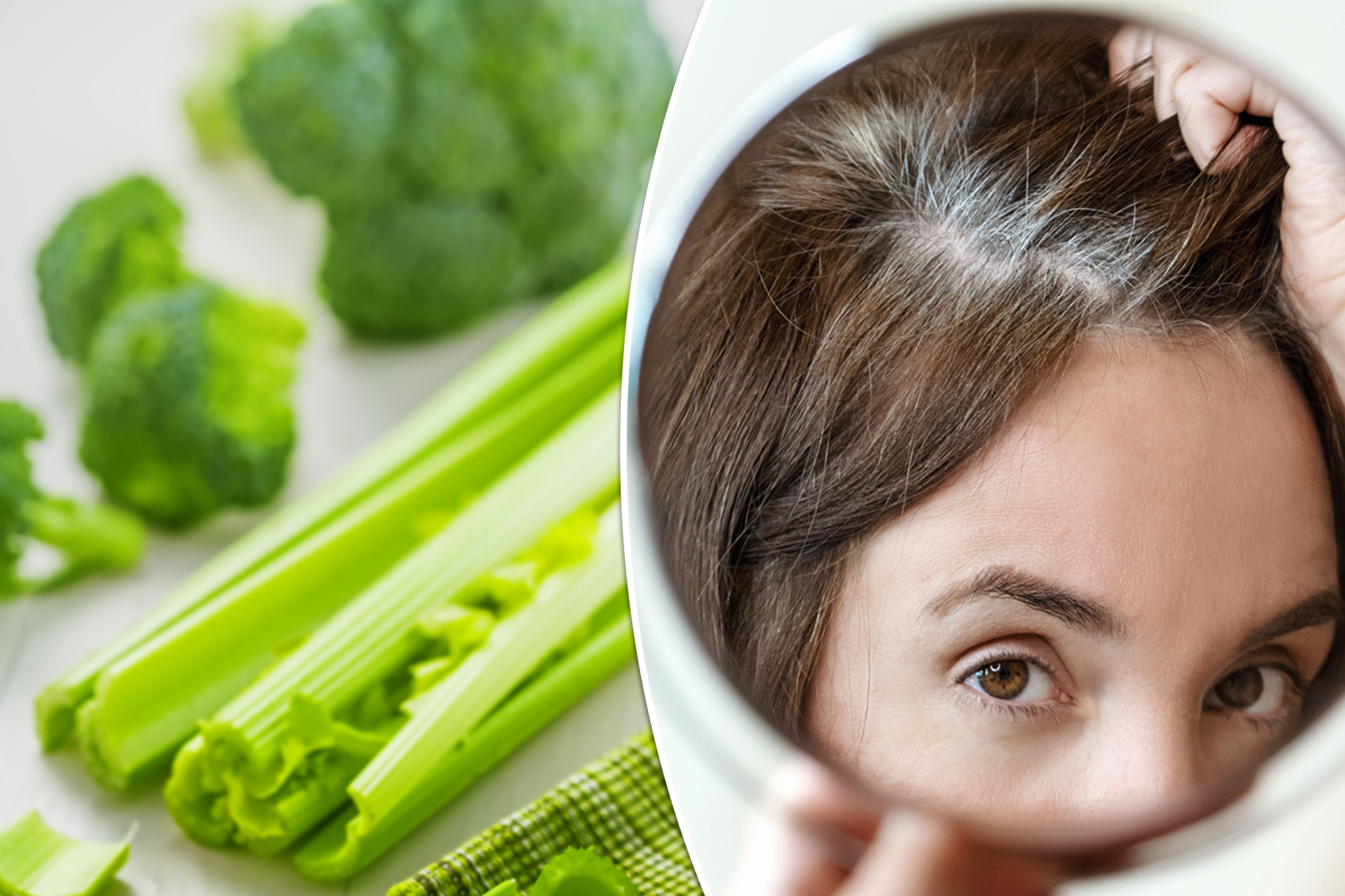
Can eating greens keep you from going grey?
A study published in the international journal Antioxidants suggests that luteolin, an antioxidant found in broccoli and celery, can help reduce the progression of gray hair.
A team of researchers from Nagoya University in Japan used laboratory mice to test the efficacy of topically and orally administered luteolin treatments.
While mice do not typically develop gray hair as part of the aging process, the research team created a genetically modified mouse model to mimic the effects of early graying, approximating the graying experienced by humans in middle age.
When hair turns gray, it is due to the gradual loss of pigment cells within the hair follicles.
Our hair’s natural color comes from melanin, a pigment produced by specialized cells called melanocytes. These cells introduce melanin into the hair cells, determining its natural color, whether it is blonde, brown, black or red.
As we age, melanocytes begin to produce less melanin, causing a gradual loss of hair pigment. Over time, some hair follicles stop producing melanin completely, leading to the growth of gray or white hair.
Over a period of 16 weeks, Nagoya University researchers administered a dose of luteolin orally to rats or applied it directly to their backs.
They compared their results with mice that had not received any treatment.
At the start of the experiment, all mice had about 20% gray hair. After 16 weeks, mice treated with luteolin saw little or no change in gray matter, while untreated mice saw gray matter increase dramatically between 60-80%.
“These results suggest that both external and internal luteolin treatments can suppress hair graying through a similar mechanism, while internal luteolin treatment showed a weaker anti-greying effect on hair than the external treatment effect. with luteolin,” the study continued.
Examining the mice’s hair follicles, the team found that endothelin, a peptide that constricts blood vessels and decreases as gray hair grows, was maintained in the treated mice.
Research suggests that endothelin supports the cellular production of hair pigment, and the antioxidant properties of luteolin may help prevent the aging of these cells, slowing or eventually suppressing the development of gray hair.
Professor Masashi Kato, who led the study, said that while the research was conducted in animals, similar mechanisms may apply to humans.
“Although we cannot say for sure that it will have the same effect on human gray hair, previous studies suggest that a similar process may occur in humans,” he said.
“A balanced diet that includes foods rich in luteolin can help suppress the progression of gray hair,” he added.
Research has proven that nutritional deficiencies can potentially contribute to premature graying of hair, although the direct causal link between specific deficiencies and gray hair is not always straightforward.
Eating a balanced diet rich in essential nutrients is essential for overall health, including hair health.
Certain nutrients are essential for melanin production, and when the body lacks these vital nutrients, they can affect the health and function of hair follicles, potentially leading to changes in hair color.
However, it is important to note that while nutritional deficiencies can affect hair health, genetics, age, medical conditions and lifestyle factors such as stress, smoking and exposure to pollutants contribute significantly to the natural graying process.
Nutritional deficiencies can speed up the process in some cases, but they may not be the only cause of gray hair.
Kato and his team hope that future testing on human hair will lead to the development of drugs that can prevent or slow the spread of gray hair.
#vegetables #stop #hair #turning #gray
Image Source : nypost.com